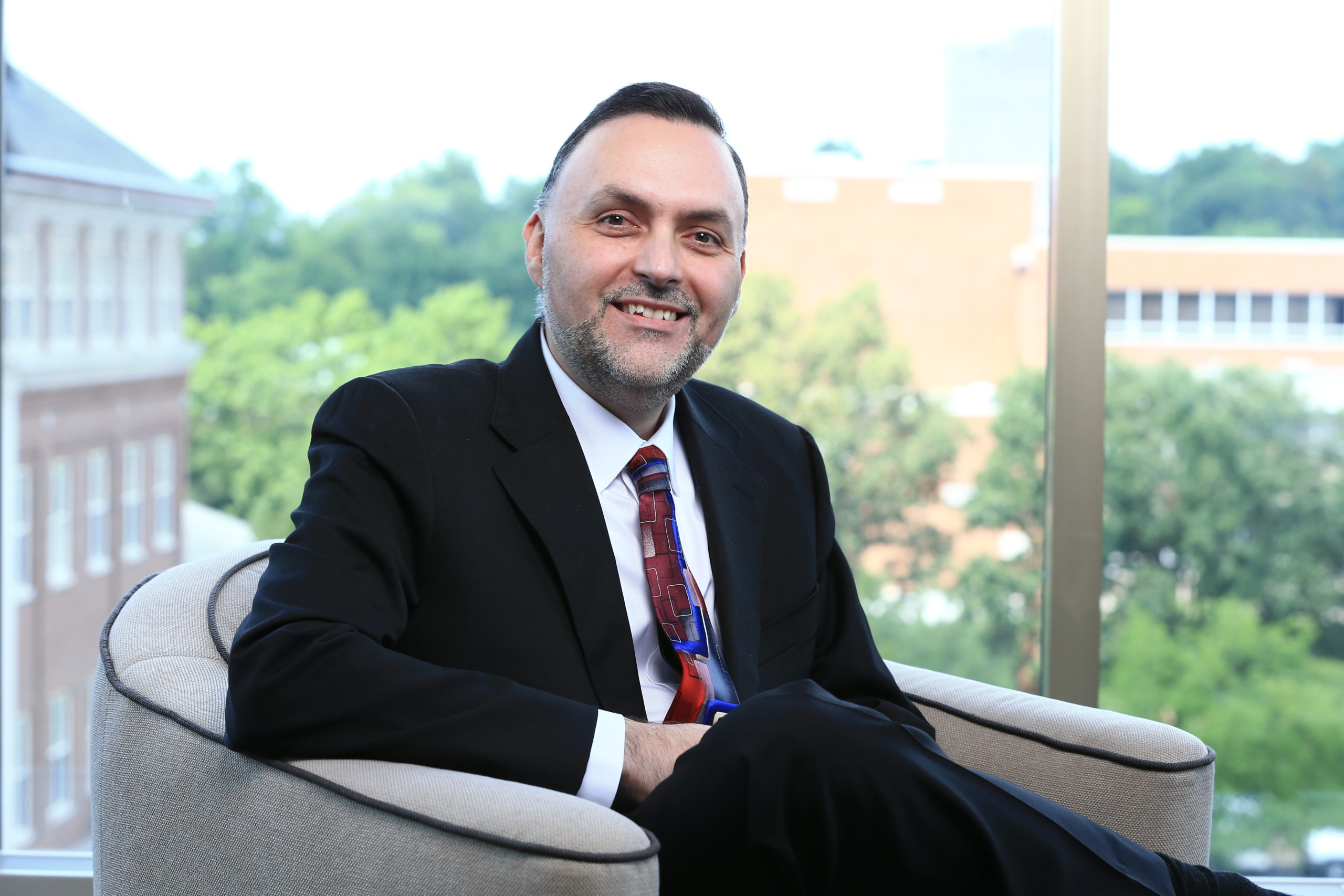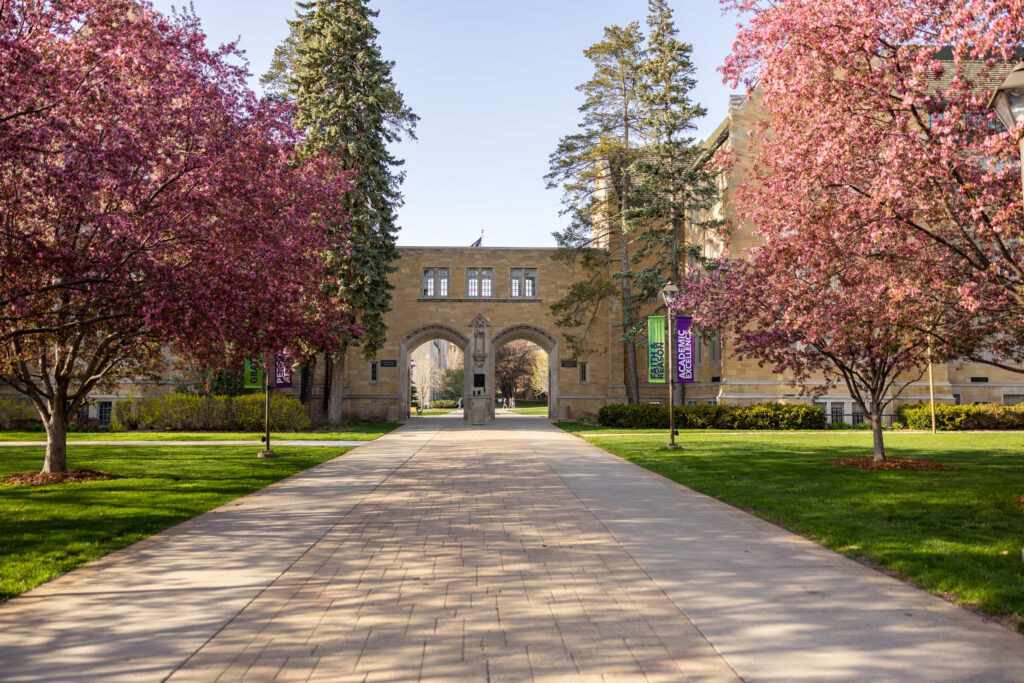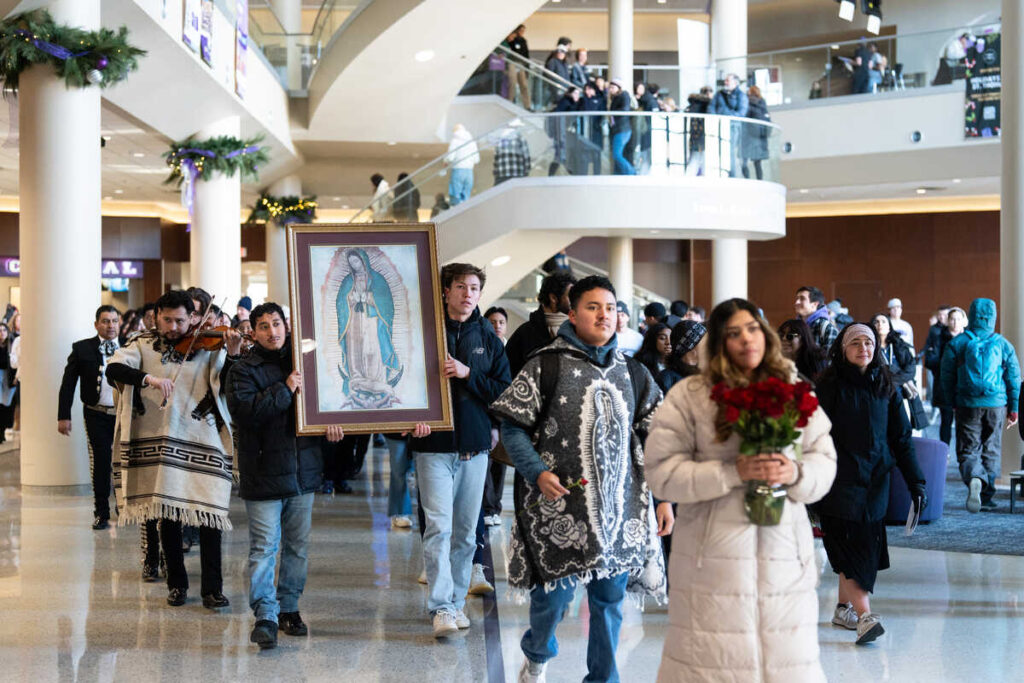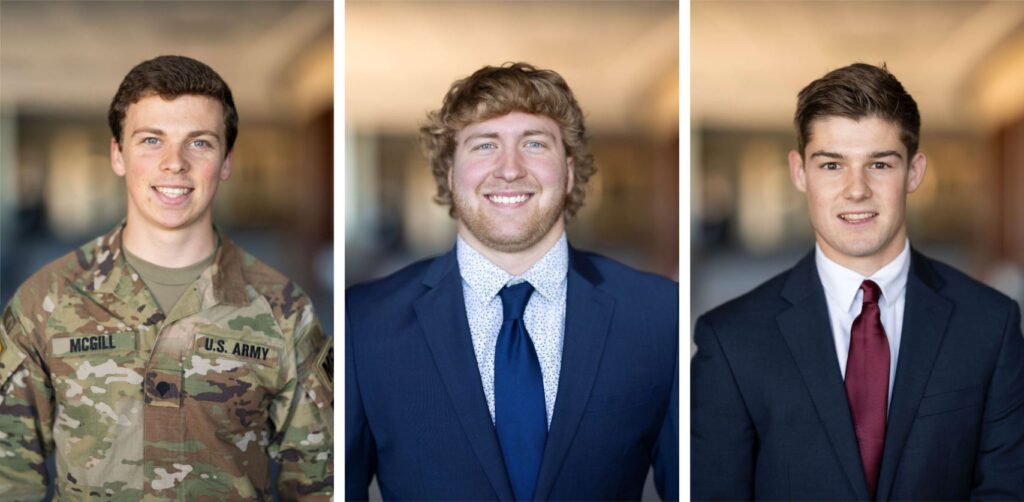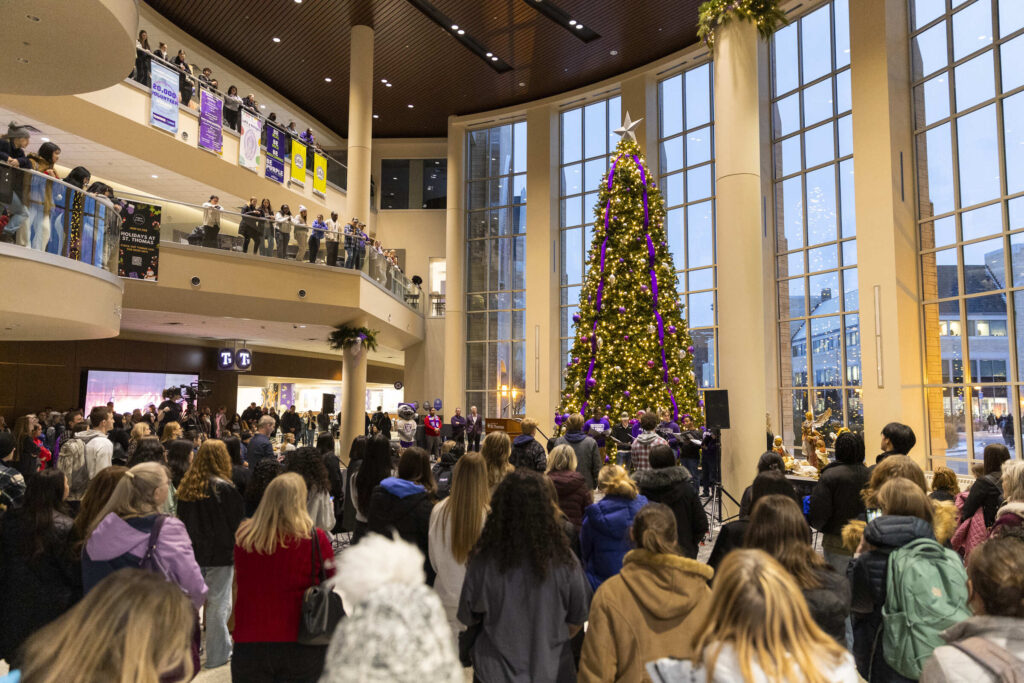Eddy Rojas sets his sights on improving name recognition for St. Thomas and increasing racial, economic and geographic diversity on campus.
Eddy Rojas dreamed of going to college during his days growing up in the small tropical country of Costa Rica, known for its lush rainforests and its beaches that hug the coastlines of both the Atlantic and Pacific oceans.
Today, 3,500 miles from his birthplace and with several master’s degrees and a doctorate in hand, Rojas looks forward to his new journey in the Twin Cities. He started Aug. 1 as the executive vice president and provost at the University of St. Thomas.
“As provost, I think that I’m going to help faculty, staff and students really be successful and reach their dreams and aspirations,” he said.
It’s a commitment that’s easy for Rojas to attest to and achieve because of his own lived experiences.
A first-generation college student, Rojas said he “jumped at the chance” to attend the University of Costa Rica on a scholarship after graduating from a Catholic high school. Enamored with education, he soon set his sights on enrolling in graduate school in the U.S., even though he didn’t speak English.
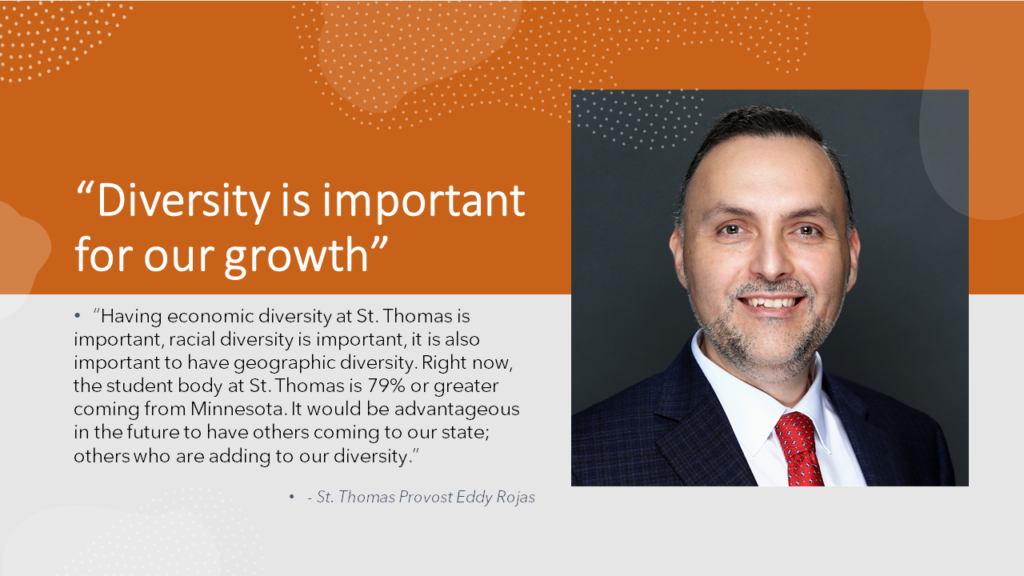
“My family could not afford a bilingual education when I was growing up, so, at age 22, I enrolled in night school in an intensive English program and began learning English three hours a night, five days a week, while working part-time jobs during the day.” And by then, he was married to his lovely wife Denise. (They just celebrated their 30th wedding anniversary this summer.)
Rojas studied English for two years to reach a level of competency to enroll at the University of Colorado Boulder, where he received his MS and PhD degrees in civil engineering, along with an MA in economics.
Academic life was calling
His plan was to return to Costa Rica to teach after achieving his Master of Science. “But my professors and my wife encouraged me to pursue my PhD and I'm glad, of course, they did.”
Since then, he has also received an MEd in higher education from Penn State and an MPS in the psychology of leadership, also from Penn State.
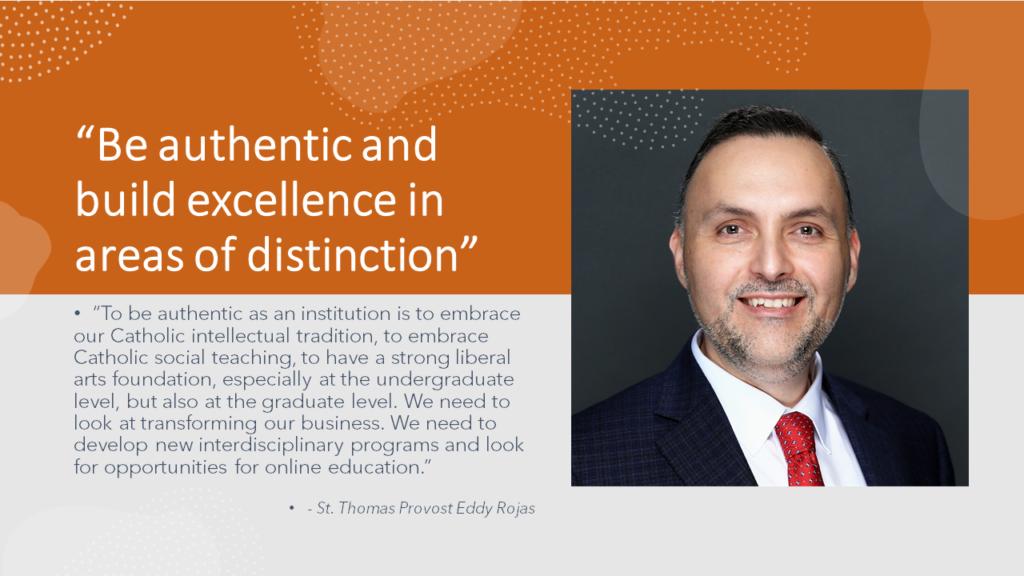
He still pursued his dream of teaching and has spent 24 years as a faculty member, eventually rising to the level of dean of the School of Engineering at the University of Dayton. There, he excelled with raising student retention rates, he championed gender equity among faculty and he increased new faculty hires from historically underrepresented groups.
“Leadership is my calling,” he said. “I enjoy helping others succeed." One of his plans includes ensuring that there’s more diversity at the university.
“Diversity is important to our growth,” he said. “Having economic diversity at St. Thomas is important, racial diversity is important, it is also important to have geographic diversity. Right now, the student body at St. Thomas is 79% or greater coming from Minnesota. It would be advantageous in the future to have others coming to our state, others who are adding to our diversity on campus.”
Rojas was in Ohio when he learned of the provost opening at St. Thomas. During his first week at St. Thomas, he greeted faculty and staff during an outdoor welcome back to campus breakfast held on the John P. Monahan Plaza.
When he’s not on campus, Rojas enjoys downtime with his wife. In fact, they kick-start each day with a leisurely walk at 5 a.m. “My wife and I enjoy walking,” he said. “We walk five miles every day. It gives us a chance to talk to each other.”
Although Rojas says he is an extrovert, he prefers not to talk about himself much. “I enjoy dialogue, reflection and bringing people together to solve problems. I consider myself a relationship builder and a consensus builder.”
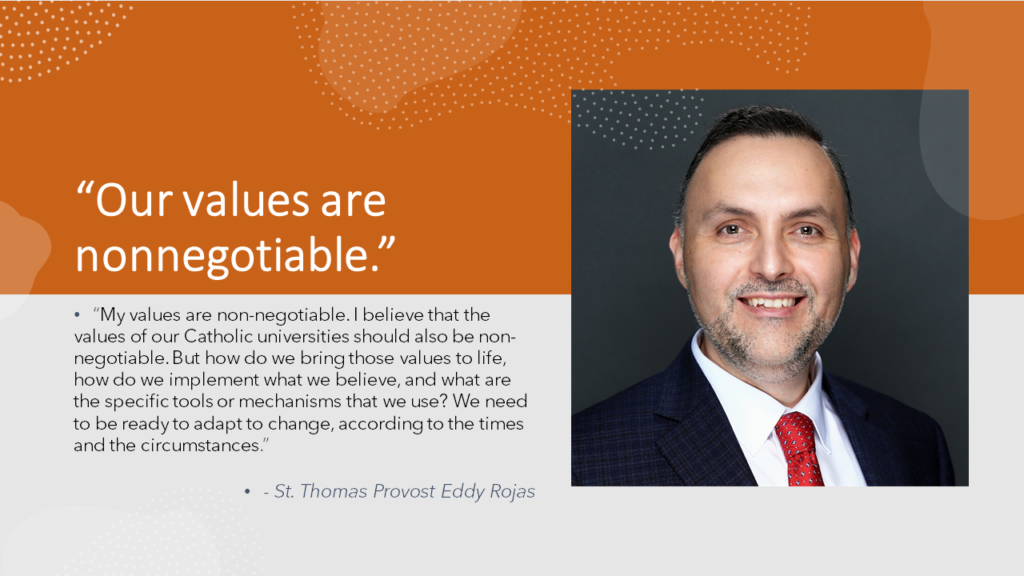
He is also an optimist, he said, who always sees some better future. “Otherwise, how can you explain that little boy from a developing country, who, despite humble beginnings, is living the American dream?”
Importance of being intentional
He wants to help others achieve their dreams, too. And that may mean being more intentional. For example, he said when he came to the U.S. he was absolutely clueless about the American educational system.
“I wish I had had a little bit more guidance through that process. So, I think that when international students are here, we need to be more intentional in creating a sense of community. Sometimes they feel isolated or maybe not as welcome as they should. We need to provide a support system so they understand the expectations of the American higher education system and that they know the opportunities that they may have moving forward.”
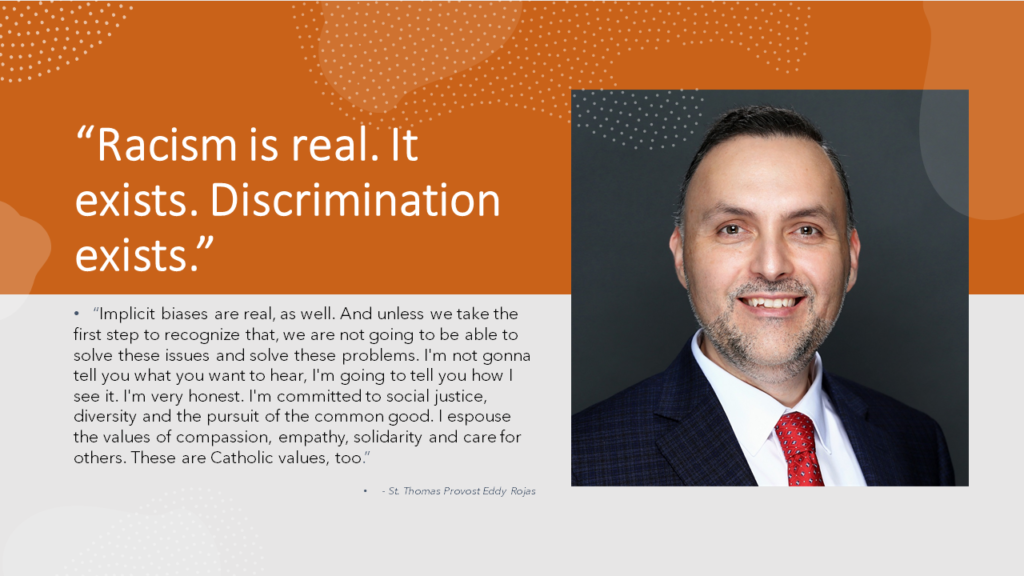
Rojas prides himself on getting to know others and understanding their needs and concerns. “I am passionate about serving people, especially those from marginalized groups,” he said. “I have received many blessings in my life and because of that, I have a responsibility to work for the betterment of society.”
Facing challenges and opportunities
As a practicing Catholic who has worked for more than a decade in higher education administration – with seven years at a Catholic institution – he said he is very well aware of the challenges and opportunities St. Thomas will face in the near future.
“We have many challenges in higher education,” he said. “The number of high school graduates is declining, especially in the Midwest. Family incomes have been stagnant in the past years and tuition has increased. Understanding the challenges includes understanding financial issues. We know that for many families, the ability to pay is an issue. Families have had a hard time seeing the value of higher education if it takes thousands of dollars to achieve. If you look at the research, the perception is that you don’t need to go into higher education to be successful. And when you take into account the demographic and economic pressures, you can see that it is not going to be easy for us – for all of the institutions of higher ed.”
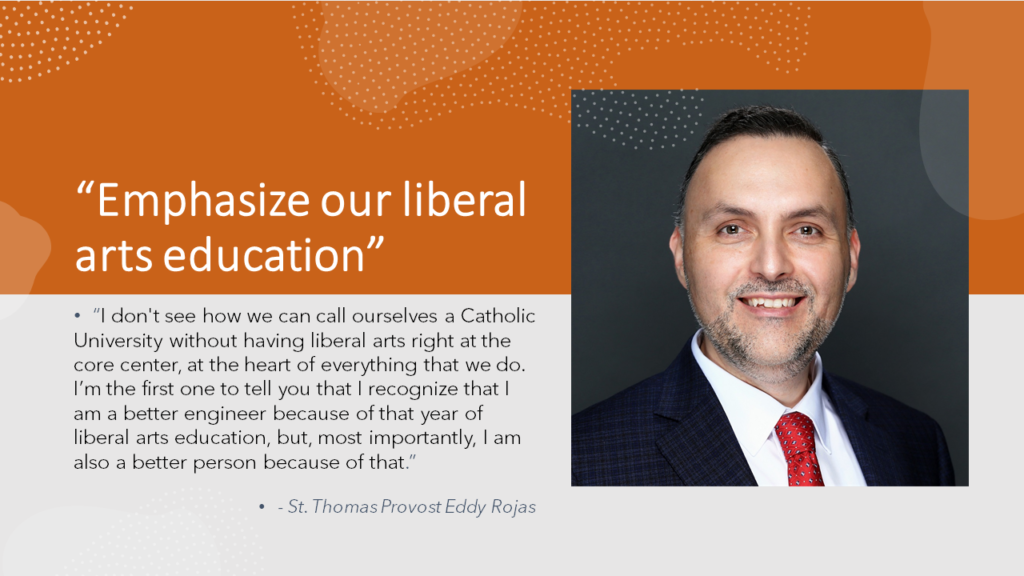
But he has a plan for St. Thomas. “My strategy is to build name recognition. It doesn't matter how excellent our institution is if they don’t know our name. If they don’t know who we are, they are not going to want to flock to us,” he said. “The key to succeeding will be to differentiate ourselves from other institutions. Why is it worth it to come to St. Thomas? What are those goals of a Catholic education and private education to make it worthwhile for families to pay the tuition? We are going to have to make our case to those families. Higher education is a highly competitive environment and we haven’t seen anything yet.”
